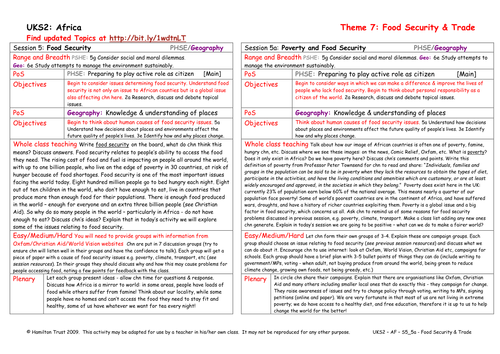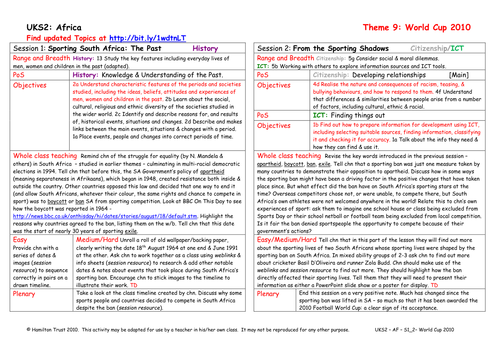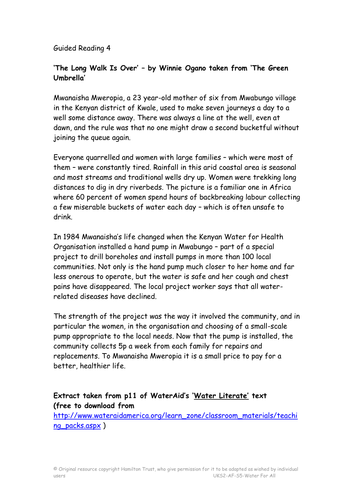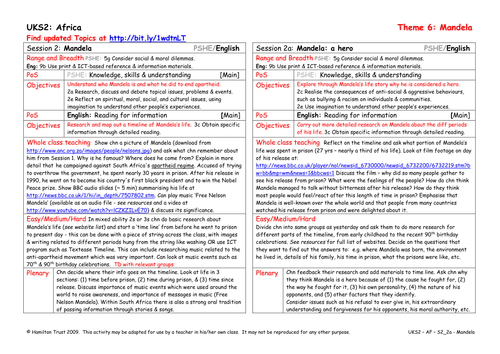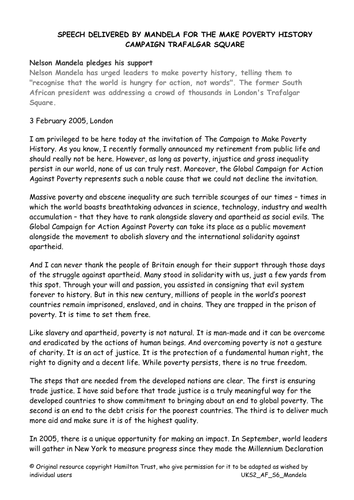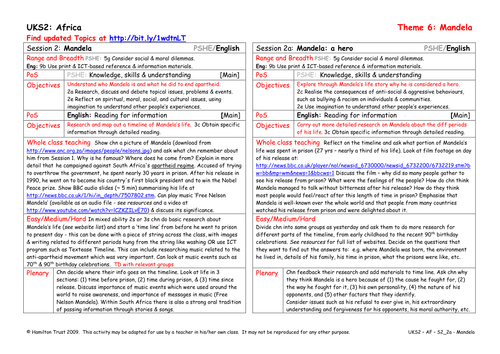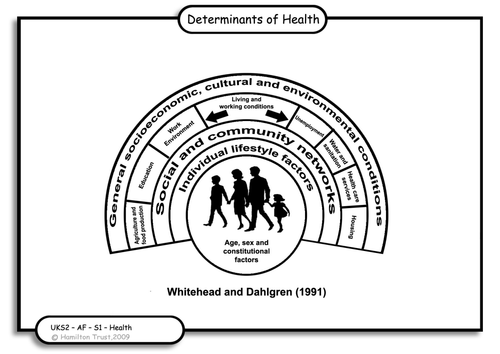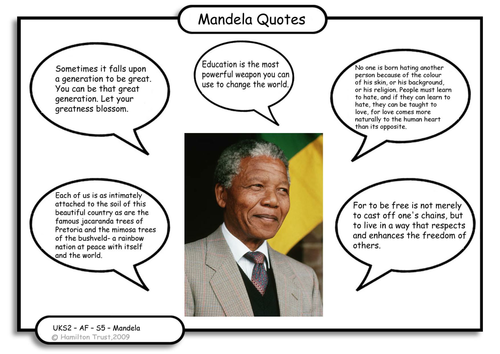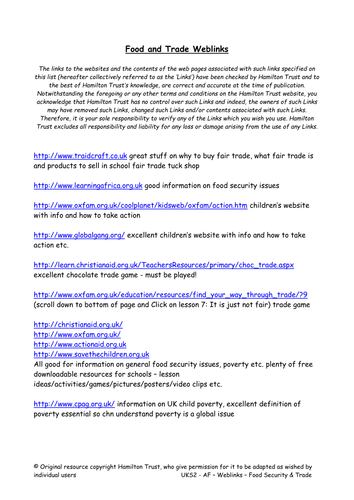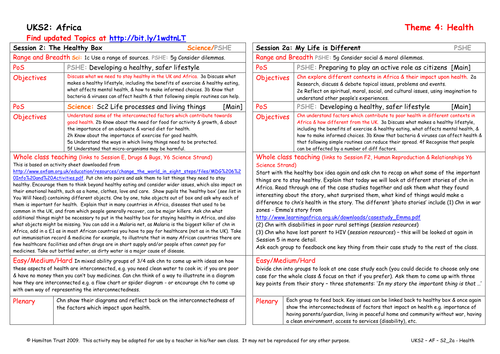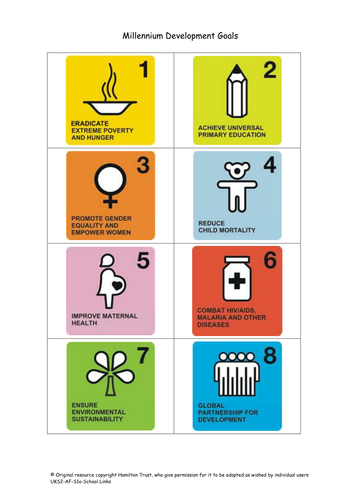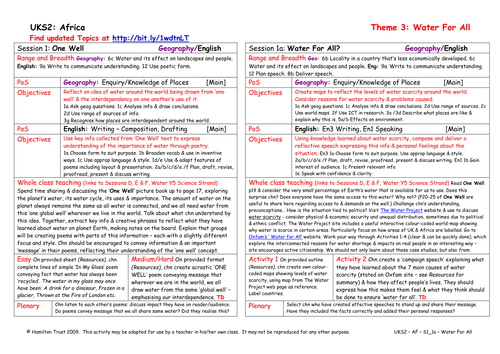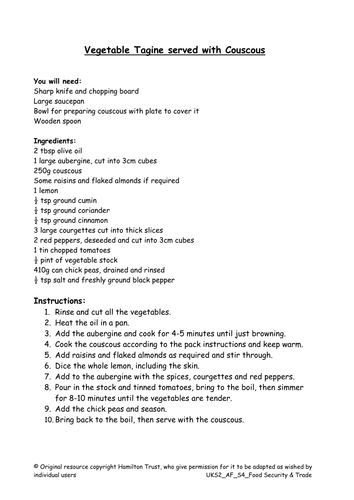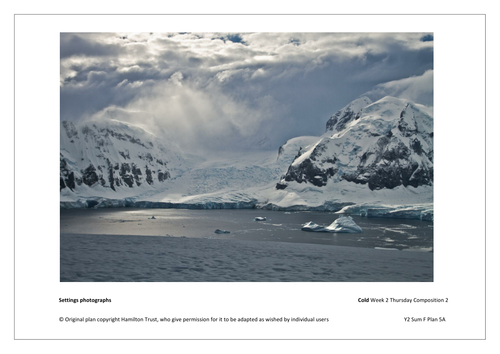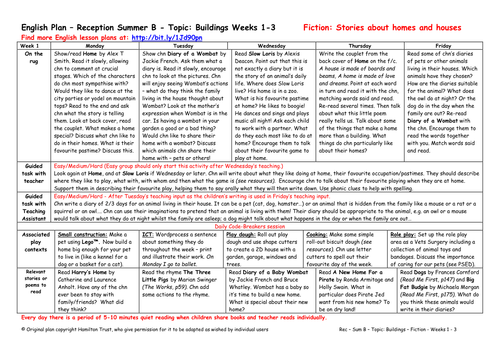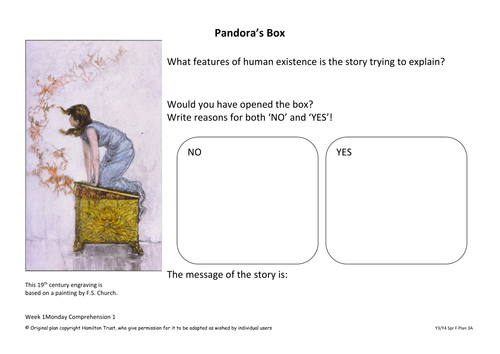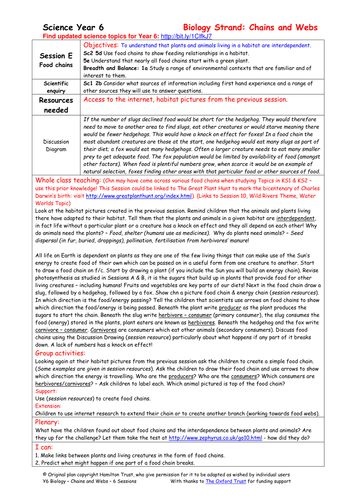
397Uploads
10040k+Views
11644k+Downloads
All resources

Food Security
Children begin to consider issues determining food security. This session helps them to understand that food security is not only an issue for African counties but is a global issue also affecting us here. Children work in groups to discuss different causes.

Eye On The Ball
With the World Cup in full swing both in school and in South Africa it’s time to become a statistician mathematician! Children use real data collected on their World Cup wall charts to find answers to their own questions.

From the Sporting Shadows
Since the ban was lifted South Africa has become one of the World’s top sporting nations and has even been awarded the World Cup in 2010. But what impact did the ban have on the lives of South Africa’s sporting stars of the past?

Meet Amina In Malawi
Dramatic changes to people’s lives occur when access to clean, safe water and latrine facilities are brought to a community. Children discuss ‘The Long Walk Is Over’ and read Amina’s story. They make ‘before and ‘after’ diary entries for her, expressing this change.
Suitable for years 5 and 6.

Mandela: A Hero
Look in more detail at Mandela’s life and in particular share with children a film of his release from prison. Reflect on reasons why Mandela is considered a hero by so many people all over the world. Add further details to the timeline.
Suitable for years 5 and 6.

Mandela and Poverty
Children study a Mandela speech on poverty and analyse why it’s so importance in terms of content, context and process. Children plan and write their own speech on the right to education.
Suitable for years 5 and 6.

Mandela
Link apartheid to Mandela. Who he is, where he comes from, why he is so famous, right up to the present day. Use internet and books to find information about Mandela’s life and start to develop a time line as a useful tool to refer to throughout the theme.
Suitable for years 5 and 6.

Life Chances
Use the life chances game to explore how your chances of being healthy and living a long life, depend upon where you live in the world. A focus on Africa.
Suitable for years 5 and 6.

Mandela and Education
This session examines through real stories the varied reasons why 40 million children in Africa don’t attend school. Children play a ranking game to explore obstacles to education.
Suitable for years 5 and 6.

Food Crops and Fufu
Children are introduced to the idea that there are some staple foods which exist in all cultures. These are usually carbohydrates, and in many African countries they consist of foods made from Maize or corn. Children make fufu.

My Life is Different
Look at case studies from different African countries and using the healthy box discuss what things are missing from the healthy box, which explains diffs between the UK & Africa. Children share their case studies and key points. A focus on children’s health.
Suitable for years 5 and 6.

Mini World Cup
Is your school ready for kick off? In this session you help the children plan a mini world cup for your school. How can you get other children involved? Who will take responsibility for each aspect of the mini tournament?

Needs and Wants
Look (again) at the list of UN Children’s Rights. Discuss whether or not children feel they have all their rights and explain how various people and organisations can help achieve them if not. Learn some words and phrases in link school’s language (or Swahili).
Suitable for years 5 and 6.

No Magic Tap
Find out about children’s experience of water all around the world using Oxfam’s Our World Of Water and compare with life in the UK. In a similar style to the book, children create a ‘scrapbook’ page comparing their lives with Khadija or Gamuchu from Africa.
Suitable for years 5 and 6.

One Well
Imagine that all the water on Earth came from one well! Children learn that the amount of water on our planet never changes and that we are all connected by the way we draw water from the same source. Children then convey this understanding through poetry.
Suitable for years 5 and 6.

Terrific Tagine
Children return to the notion of a staple food. They look at uncooked couscous grain and discuss how this grain is a staple of much of North Africa and Middle East. Then children cook vegetable Tagine and enjoy eating it!

Year 2 Fiction 5: Quest stories
Children read a range of quest stories, exploring structure and language choice. They explore 4 types of sentence and experiment with tense. Children write their own extended stories, concluding by performing their writing to a younger child. This plan uses the books Lost and Found and The Way Back Home, both by Oliver Jeffers and We're Going on a Bear Hunt by Michael Rosen. It also uses Hamilton Group Reader The Quest.

Reception Fiction (Buildings): Stories about homes and houses (weeks 1-3)
Listen to stories about different homes for people and creatures and decide where they would like to live, Home by Alex T Smith, The Town Mouse and the Country Mouse by Helen Ward, and Diary of a Wombat by Jackie French and Bruce Whatley. Children write their own version of The Town and Country Mouse and use The Lighthouse Keeper’s Lunch by Ronda and David Armitage to plan best lunches. Keep diaries, make lighthouses and stormy music.

Year 3/4 Fiction 3: Myths and legends
Become familiar with a range of Greek Myths, The Orchard Book of Greek Myths by Geraldine McCraughrean, Greek Myths by Marcia Williams. Use them to study powerful verbs, verb tenses, use of first and third person, paragraphs and ways of showing dialogue. Children draw story maps to learn a Greek Myth off by heart and to retell another myth in written form.

Food chains
All plants and animals living in a habitat are interdependent. In this session the children investigate a number of feeding relationships and create food chains to show the transfer of energy from the producers through the consumers.
Suitable for Y6 pupils.

